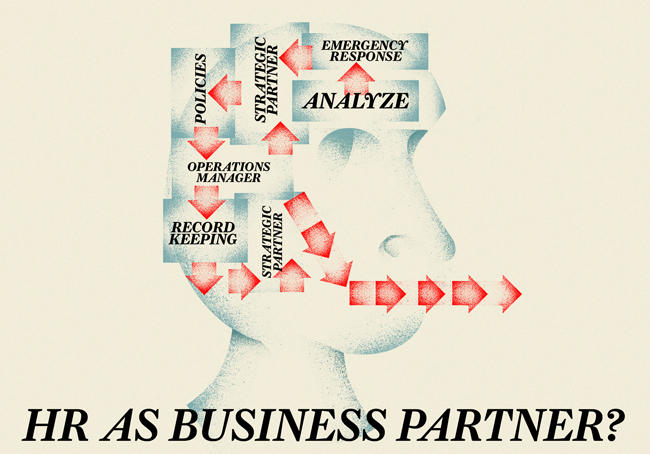"HR must give value or give notice."
- Dave Ulrich, HR Guru and Best-Seller Author, The HR Value Proposition
By Kevin Reynolds,Organizational Capability Consultant
The term HR Business Partner or HRBP has been around for many years, and more Chief Human Resources Officers (CHROs) are relying on their HRBPs to drive HR strategy in the business units and to be the "face of HR" with their internal clients.
To me the reason behind this lies in HR’s newly evolving role, which is to create an organization that can "win" in the market place. At the minimum, that means ensuring the business has the right people in the right place to drive the business strategy and achieve business goals. At the maximum it means partnering with the business managers, i.e., understanding the business and present business solutions to them, sometimes before they are even asking for a solution.
I mentioned the word “business” many times above. I can’t stress strongly enough how important this aspect of the HRBP role is.
Actually, an HRBP has 4 main roles:
* Strategic Partner: designing and implementing HR strategies/responses to meet business challenges
* Emergency Response: Immediate fixes to urgent issues
* Employee Mediator: Conflict resolution
* Operations Manager: Policies and procedures
Although transactional activities remain important, it is in the "Strategic Partner" role that HRBPs have their greatest impact on the business. However, research indicates that HRBPs typically spend only about 15% or less of their time in this role, and around 50% of their time as an "Operations Manager," despite the efforts by many companies to outsource these tasks to a shared service center.
What are competencies do HRBPs need to be more effective?
Business knowledge:
HRBPs ideally should have 3 or more years business experience. Ideally this should be partly in a customer facing role, and partly in an internal role (e.g., started in sales or customer service and then rotated through the process improvement department).
Leadership:
HRBPs need to identify human capital challenges in a business unit and be able to propose alternative solutions to problems.
Presentation:
HRBPs must be strong presenters, being able to communicate not only to individuals and also to the entire organization.
Interpersonal skills and Conflict Resolution skills:
HRBPs need to be able to successfully intervene when needed. They also need to be able to handle their own conflicts, which sometimes can arise when they have to say “No” to a line manager!
HRBPs should also be able to:
Understand and use metrics/ key performance indicators
Analyze business unit data
Transactional Knowledge
Record keeping
Workforce management knowledge
Compensation and benefits
General HR Knowledge such as Labor Standards Law (LSL)
Well, the list could go on and on, but let’s leave it there for now
How can HRBPS be more successful?
This is a short question with a long answer, and there is not enough space to reply, so let me quickly summarize this by saying:
* The HR Director needs to empower the HRBPs to act without constant supervision (I’m a big believer in this)
* HRBPs need to use their own initiative in their role, but also to develop their own competencies.
* They need to “take HR to the business” rather than just waiting for line managers to ask for help.
* They may need help and support from the HR Director and Country Top when a line manager says: “I don’t need HR, I do my own HR stuff.” (I’ve seen a few cases like that!)
* But, overall the biggest thing is to understand the business.
Author's note: I’ll be sharing more about all of these at the JHRS Summer Event of the same title on July 28th (http://www.jhrs.org/calendar?eventId=174065) Do come along!
See you there.--KR
Other posts by The Japan HR Society:







